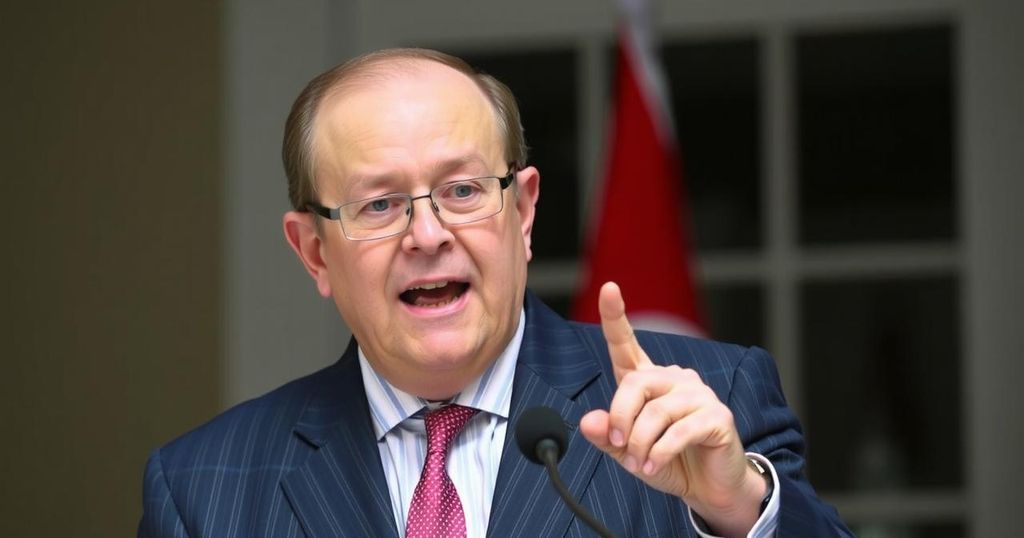Joseph Aoun has been elected as the new President of Lebanon, concluding a two-year presidential vacuum. His election is significant amidst the backdrop of a severe economic crisis and geopolitical tensions involving Israel and Hezbollah. The new president faces the immediate challenge of enacting reforms for international support while navigating a complex political landscape.
On January 9, 2023, Joseph Aoun, previously a general in the Lebanese Armed Forces, was elected President of Lebanon, concluding a prolonged presidential vacuum that persisted for over two years. He secured the presidency after two rounds of voting, amassing 99 votes from the Lebanese parliament, surpassing the necessary two-thirds majority. This election is pivotal in restoring institutional functionality amid ongoing turmoil in the nation.
Lebanon had been without a president since the expiration of the term of former President Michel Aoun in October 2022. The fragmented nature of the parliament hindered successive attempts to elect a leader, which subsequently delayed the appointments of other crucial governmental figures, including the prime minister. Joseph Aoun’s election signifies a significant step towards reestablishing political stability, albeit in the face of considerable adversities.
The newly elected president inherits a country grappling with a severe economic and financial crisis, a predicament stemming from a systemic collapse in 2019 and subsequent public debt default. The situation worsened as Lebanon contended with various shocks, including the COVID-19 pandemic and the repercussions of the war in Ukraine, which drove commodity prices up. Political deadlock has impeded essential reforms vital for accessing International Monetary Fund (IMF) financial assistance agreed upon in 2022, though international stakeholders, notably Saudi Arabia, have signaled a readiness to offer support post-election.
Moreover, the regional geopolitical environment poses further challenges, particularly concerning tensions with Israel and the militant group Hezbollah. Recent conflicts have inflicted significant economic damage, estimated at around USD 8.5 billion by the World Bank, alongside extensive physical destruction and humanitarian impacts, leading to numerous casualties and displacements. Preserving the ceasefire between Hezbollah and Israel will be crucial for Lebanon’s stability, especially amid allegations of ceasefire violations.
President Aoun’s election is a hopeful development for Lebanon’s future; however, the nation continues to face formidable political, financial, and institutional hurdles. Credendo has, therefore, designated Lebanon with a short-term and MLT political risk classification of 7 out of 7, reflecting serious ongoing challenges.
Lebanon has endured a period of instability characterized by a lack of presidential leadership, following the termination of Michel Aoun’s presidency in October 2022. The fragmented parliament’s previous inability to elect a president highlighted the challenges within the political system. Joseph Aoun’s ascension to the presidency is seen as a critical step towards ending this vacuum, crucial for broader governmental functions. Amid these political complications, Lebanon grapples with a dire economic crisis, negatively impacted by both local and global factors, which necessitate urgent reform and international assistance.
In conclusion, the election of Joseph Aoun as the President of Lebanon marks a significant moment in the country’s ongoing struggle to achieve stability and governance after more than two years of presidential vacancy. While his presidency brings optimism, the severe economic crisis and geopolitical tensions present daunting challenges that the new administration must address. The situation remains precarious, warranting careful observation and management to foster recovery and institutional effectiveness in Lebanon.
Original Source: credendo.com






